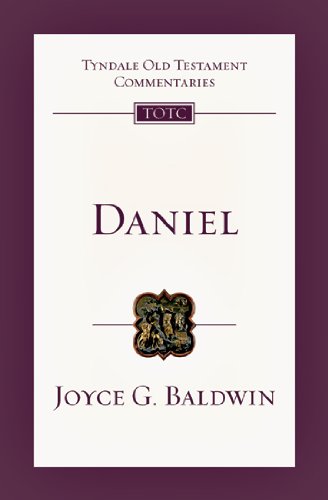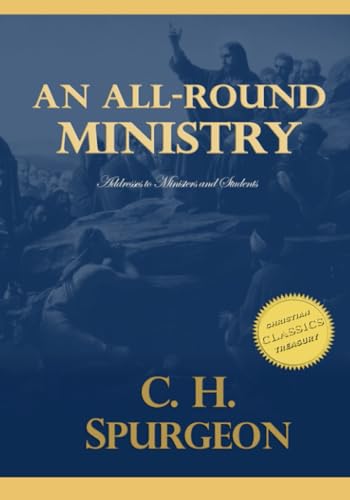For those interested in Christianity in Africa, and especially for those interested in evangelical Christianity in Africa, it would be hard to over-emphasize the significance of this book.
Byang Kato was a young Nigerian theologian of unusual ability and vitality, with a profound concern for the continuing growth of biblical Christianity in Africa. In this study he has focused on what he takes to be major theological pitfalls threatening the very survival of such Christianity on the continent. His thesis is that a pernicious syncretistic universalism is being promoted, almost unnoticed, within African Christianity. He seeks to call the evidence for this development to the attention of African Christians and to show how far it departs from true biblical teaching.
It must be said at once that Kato is by no means opposed to a legitimate contextualization of the Christian message in Africa; to the contrary, he says that an indigenous theology is a necessity. To fail to recognize that this is fundamental to his theological perspective—as some have—is to fail to understand Kato. I well remember Dr Kato igniting a large evangelical congress in Nigeria at the conclusion of a notable address with the ringing appeal: ‘Let African Christians be Christian Africans!’ He wanted a Christianity that was, as he put it, ‘truly African and truly biblical.’
It is to the second element of that prescription, the biblical, that Kato directs attention in Pitfalls. Kato begins by describing factors which are proving conducive to the emergence of a syncretistic universalism within African Christianity. He singles out the theological issue of the relation of Africa’s traditional religions to African Christianity as that aspect of the trend which he wishes especially to explore. An overview of traditional religions is then furnished, made more vivid and concrete by a careful description of the religious beliefs and practices in which Kato himself was reared, namely those of his own tribe, the Jaba of Nigeria. (The chapter on Jaba religion is of independent value as an addition to the descriptive literature on African traditional religions.)
The central section of Pitfalls contains an examination of the writings of two prominent African theologians, John Mbiti of Kenya, and Bolaji Idowu of Nigeria, and of major pronouncements from the influential All Africa Conference of Churches. Kato seeks to expose those elements from these sources which either explicitly or implicitly promote a positive syncretistic assessment of the worth of African traditional religions for Christian faith and practice in Africa. At the same time Kato subjects such elements to a systematic critique from a biblical perspective.
Throughout his analysis Kato is careful to emphasize that it is entirely consonant with biblical teaching to recognize that African traditional belief possesses some authentic knowledge of God. But he is adamant that submission to the authority of Scripture is incompatible with such further prevalent notions as that in African traditional belief an authoritative revelation is available to the Christian, or that in traditional religious practice a legitimate worship is being offered to God, or that traditional religions are in some sense salvific. The traditional religions of Africa ‘highlight the cry of the human heart, but the solution lies elsewhere’.
Kato concludes with the proposition that African Christianity is today faced with a critical challenge very similar to that faced by the church of the first centuries, namely how to maintain the uniqueness of the gospel in a milieu suffused with religious relativism, where the pervasive sentiment is that all religious roads lead eventually to the same goal. Then in the Mediterranean world and now in Africa, Kato says, the appeal of a syncretistic universalism is pressed upon the church, not only by external force and persecution, but as well, and more insidiously, by deliberate accommodation promoted by leading intellectual groups within the church. In such circumstances Kato wishes to ‘sound an alarm’ and to recall the church in Africa to a vital biblical Christianity.
When in the preface of Pitfalls the book is described as a ‘maiden effort’, we are offered the basic clue, I believe, for assessing its true character and significance—and that in three respects.
(i) Pitfalls is not Byang Kato’s magnum opus. Kato was not yet forty when he died in a tragic drowning accident at Mombasa, Kenya, only months after the publication of this book. This was his first major publication, a reworking of his doctoral dissertation. Those who knew him best felt that a maturing of reflection, a sharpening of perception, a broadening of awareness, a mellowing of style, were all still very much in progress. This first work should be judged, therefore, as precisely that, with all the freshness, the angularity, the limitations, which one should expect in a young man’s first book. To be sure the analysis is not always accurate, the polemic not always just, the demonstration not always persuasive, the organization not always clear. This is only to be expected. Indeed at his death Kato was already in process of revision. Pitfalls is to be taken not as a final word but as the first word, a promise of what might have come had Kato been spared. As such, it is an outstanding achievement.
(ii) But even more important for the proper assessment of Kato’s Pitfalls is the realization that it is a ‘maiden effort’ in the theological activity of African evangelical Christianity. One may of course find earlier contributions from various African evangelicals, but as often as not these were addressed to the issues preoccupying western missionary forces within Africa. Pitfalls represents the first sustained effort by an African evangelical to engage in the theological issues being debated in Africa by African theologians.
Many think indeed that Kato’s most significant contribution to evangelical Christianity in Africa was his effort to awaken it to the necessity of becoming involved in the theological debate within Africa. He repeatedly charged African evangelicalism with ‘theological anemia’, and energetically exploited his position as general secretary of the Association of Evangelicals of Africa and Madagascar to try to change the pattern. He travelled and wrote and spoke constantly in the interest of an accelerated development of evangelical theological education at all levels in Africa. He deliberately sought out and encouraged young aspiring African evangelical scholars in their studies and work. He dreamed up programmes to stimulate greater theological involvement among evangelicals, programmes which are still emerging. And he undertook himself an opening step in direct evangelical theological engagement in Africa with the publication of Pitfalls. Pitfalls thus represents a substantive personal contribution to Kato’s larger initiative to rouse evangelical African Christianity toward greater theological responsibility and involvement. This summons and vision may well prove Kato’s most abiding legacy to evangelical Christianity on the continent.
It is important to observe, however, that Pitfalls should not be taken as Kato’s intended paradigm for the theological task awaiting African evangelicalism. While Kato urged upon African evangelicals the importance of developing a positive African Christian theology, his one published book goes very little beyond a negative critique of certain pitfalls menacing such a venture. Kato doubtless would have argued, with reason, that this was an essential preliminary step, a ground-clearing exercise in preparation for the positive task. But he certainly saw the task as much more than merely polemics. And that he would himself have attempted to follow on with a positive contribution entirely fits the direction of his intellectual interests and inclinations at the time of his death. For balanced assessment, Pitfalls must be viewed within this wider context of Kato’s vision for a positive evangelical theological initiative in Africa.
(iii) It should come as no surprise that Pitfalls was not received everywhere with enthusiasm. No thorough-going critique of this sort ever is. Some reaction was vicious. A prominent religious newspaper in eastern Africa ran a review which calls Pitfalls ‘alarmist in what it says and colonial in the perspective in which it is written’. It goes on to suggest that Kato, through miseducation, permitted himself to become a tool ‘in the preservation and protection of neo-colonial interests’, and goes on to charge: ‘There is a theological pitfall in Africa from which we must climb out: the reactionary evangelical theology which has a capitalistic birthright.’ In modern Africa those are powerful charges indeed. One theologian reputedly threatened legal action over certain passages in the book. When a reviewer for a leading Christian journal in West Africa unexpectedly submitted a warm commendation, it was felt necessary to find and print a second sharply critical review on the facing page.
When emotive reactions to Pitfalls have receded, valid criticisms will certainly remain. But it would be a misfortune if mere criticism were all that remained. For, quite apart from its role within African evangelicalism, Kato’s book must be recognized as a highly significant ‘maiden effort’ within the general theological debate in Africa.
If one peruses the literature of African Christian thinking over the past two decades, one will encounter the affirmation that African Christianity must be both authentically African and authentically biblical. To be sure not all would feel this way, or put it so precisely. But it is a recurring theme. And yet almost without exception attention within the general theological discussion has concentrated on the former element, on making Christianity authentically African. It is a worthy and necessary task, as Kato himself emphasized. But if African Christianity is not to lose its function as salt in the world, not to say its very soul, it must also direct unremitting attention to its rootage in the biblical traditions. So African theologians have asserted. The terms therefore in which the fundamental question of contemporary African Christian thinking is posed require that not only the query ‘Is it African?’ but also the query ‘Is it Christian?’ should be steadily pursued.
Pitfalls represents the first sustained effort in Africa to raise and pursue the latter question, by a systematic critique of contemporary African Christian thinking from the standpoint of biblical teaching. Whatever else one might wish to say, it is in this regard a ground-breaking work. It would be a pity therefore if general Christian thinking in Africa merely fixed upon flaws in Pitfalls. For Pitfalls represents a new direction in the theological debate, and, whatever its flaws, stands as a pioneering attempt in a critically necessary task for all true African Christian thinking.
One development after Kato’s death requires comment in postscript, because of its serious implications for the continuing assessment of Pitfalls. Following some comments made by a speaker at the Pan-African Christian Leadership Assembly in Nairobi in December, 1976, it was reported in print both in Africa and overseas that before Kato’s death he had met with John Mbiti and had apologized for the charge of incipient syncretism which he had levelled against Mbiti in Pitfalls. Kato’s friends were deeply upset at this report, which they knew to be untrue and which they felt attempted to emasculate at a stroke the heart of Kato’s critique, at a time when Kato, conveniently enough, could no longer respond and set the record straight. The original comments, upon which the printed reports were based, were made by Charles Kraft of Fuller Theological Seminary. Dr Kraft has assured me, and the official transcripts of the Assembly bear him out, that he did notsay that Kato had apologized to Mbiti for the charge of syncretism. The subsequent printed reports were an unwarranted inference from Kraft’s remarks. The facts behind what Kraft did say may be stated briefly. Kato, following the publication of Pitfalls and just before his untimely death, requested a meeting with Mbiti. During the course of a friendly discussion, and in response to objections from Mbiti, Kato apologized for the wording of certain passages in Pitfalls, and undertook to make adjustments accordingly in two paragraphs in the book in future printings. It was a worthy gesture, and worth reporting. It is equally worthwhile to note the inexcusable distortion of the subsequent printed accounts, which converted a modification of tone into a full-scale retraction of substance. Kato made no deathbed recantations! He was still growing, but he was not changing directions. Pitfalls remains his spirited challenge to move from theological complacency to theological alertness and responsibility in the quest for a Christianity that is ‘truly African and truly biblical’.
Paul Bowers
ECWA Theological Seminary, Igbaja, Nigeria







